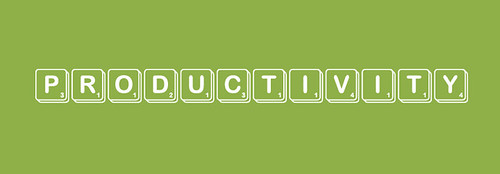
– John Lennon
There’s a lot of talk in business and self-improvement about what it means to be productive. I believe that outside of providing basic necessities for survival (food, clothing, shelter), a lot of what we value in life is subjective. Therefore, what is a productive activity for one person may not be considered a productive activity for someone else. For example: One person may enjoy a squeaky clean household, so they clean twice a week. Meanwhile another person may not mind some disorganization, so they only clean every other week.
Similarly, I’m sure that everyone can pick out one or two corporations and claim that they are producing nothing of value. Nintendo creates video games, and that just makes people lazy and mindless. Or American Eagle makes expensive polo shirts, who would want that? It is easy for us to critique things we don’t find a particular use or value for, but we can’t do so without neglecting the preferences of others.
Some may argue that we do have an objective way of measuring what is valuable and what isn’t. It’s called prices. But this fails to explain why some people willingly choose a lesser paying job, give to charity, or make deals that don’t maximize economic gain. For example, in the “ultimatum game” one player will propose how to divide a sum of money between two players. If the second player accepts, the deal is valid; but if the second player rejects, neither player receives anything. In one study at Indiana University, results showed that half of participants turned down offers where they would receive less than 30%, even though receiving something would seem better than receiving nothing.
So what does this tell us? Clearly, there are other values that influence our behavior besides just money or material luxury, and one of those values may be “fairness.” The great economist Ludwig von Mises accounted for these motivators of human decision-making by calling these “psychic (or mental) profits and loss.”
- “Psychic profits and losses are sensible, subjective, mental and purely personal. They can be neither measured nor weighed. They can only be felt or sensed.”
Mises advocated this theory over half a century ago, but modern day economists are just beginning to accept that people are not “profit maximizers” in the materialistic sense of the term. Popular books in behavioral economics, like Predictably Irrational, illustrate how some of these psychological forces come into play and shape our everyday choices.
Money isn’t everything
It may seem obvious, but many still equate productivity with money-making, and this simply isn’t so. As I’ve shown above, values are not synonymous with prices or profits, and many of the values we seek in the world cannot be replaced with material luxury (like health, relationships and creativity). Equally so, this helps explain why many people who are rich still find themselves feeling miserable and depressed.
Certainly, we can’t ignore the importance of money and material items, but studies show that after we reach an income level of around $75,000, an increase in money no longer correlates with increased happiness. It is also true that those who make less than that can still find happiness through the fulfillment of other values.
Many values are subjective and personal
As I mentioned at the beginning of this article, we all have slightly different values. Some prefer more organization than others. Some prefer spending more time outside with nature, rather than inside behind a computer. And some prefer different genres of music and movies. These preferences all play into how we should spend our time (both at work and at home).
John Lennon once said “Time you enjoy wasting was not wasted.” And I tend to agree. We should pay attention to what makes us feel fulfilled, and not necessarily what makes someone else fulfilled. If we follow someone else’s roadmap for how we should live life, it is very likely that some of our subjective values won’t be met. We have to think for ourselves.
You define your own productivity
It’s ultimately up to every individual on how they should spend their life. If you want to move to Tibet and meditate in a cave for the rest of your time on Earth, that is your version of productivity. Go for it! If you want to work your way to CEO of a major company, that is again your choice. Follow your passions and values. The goal of this blog has never been to tell people exactly what they should do with their lives (at most, I sometimes offer suggestions). But the biggest thing for me is to empower individuals to define themselves.
The hardest part about defining your own productivity is ignoring the values that have been pushed onto you by society and external forces. Before we can discover how we want to spend our lives, it often takes some dedicated reflection and self-interrogation. Be aware when you are acting in ways just to meet someone else’s expectations. And never be afraid to ask yourself what you want.
Enter your email to stay updated on new articles in self improvement:
